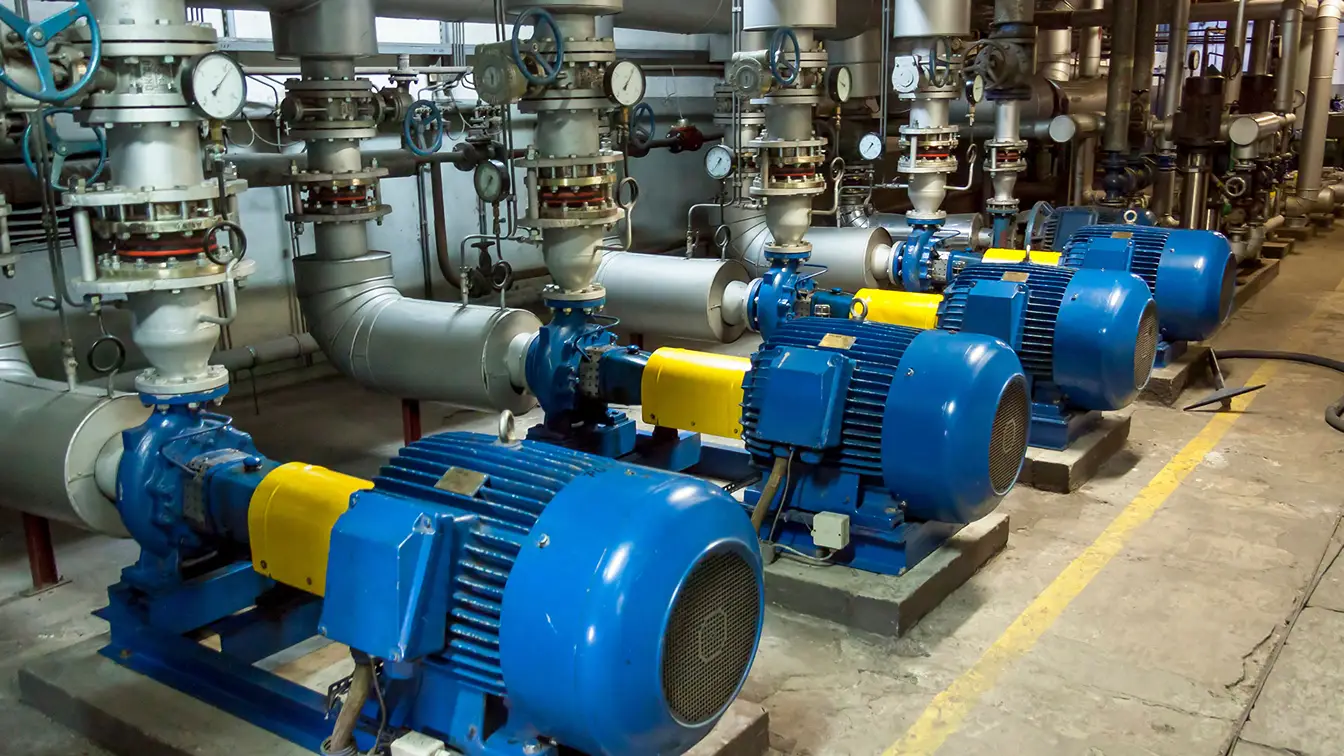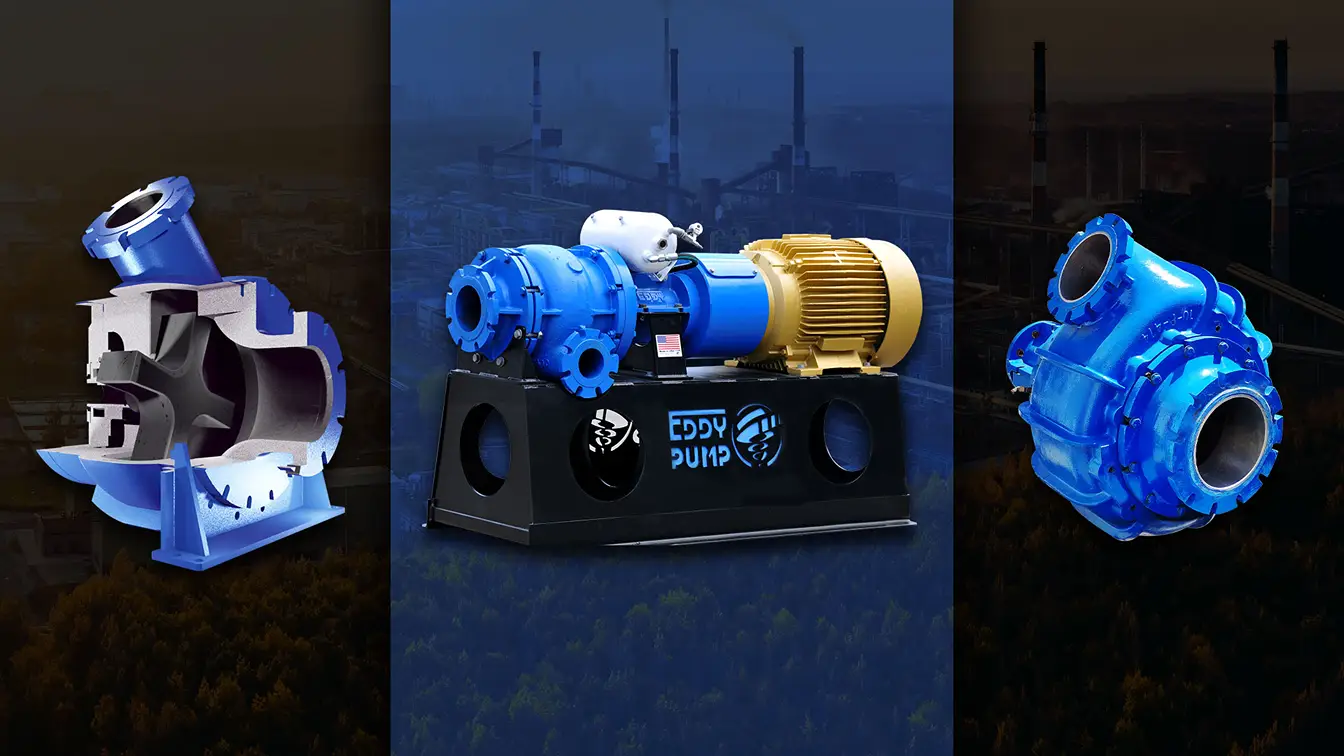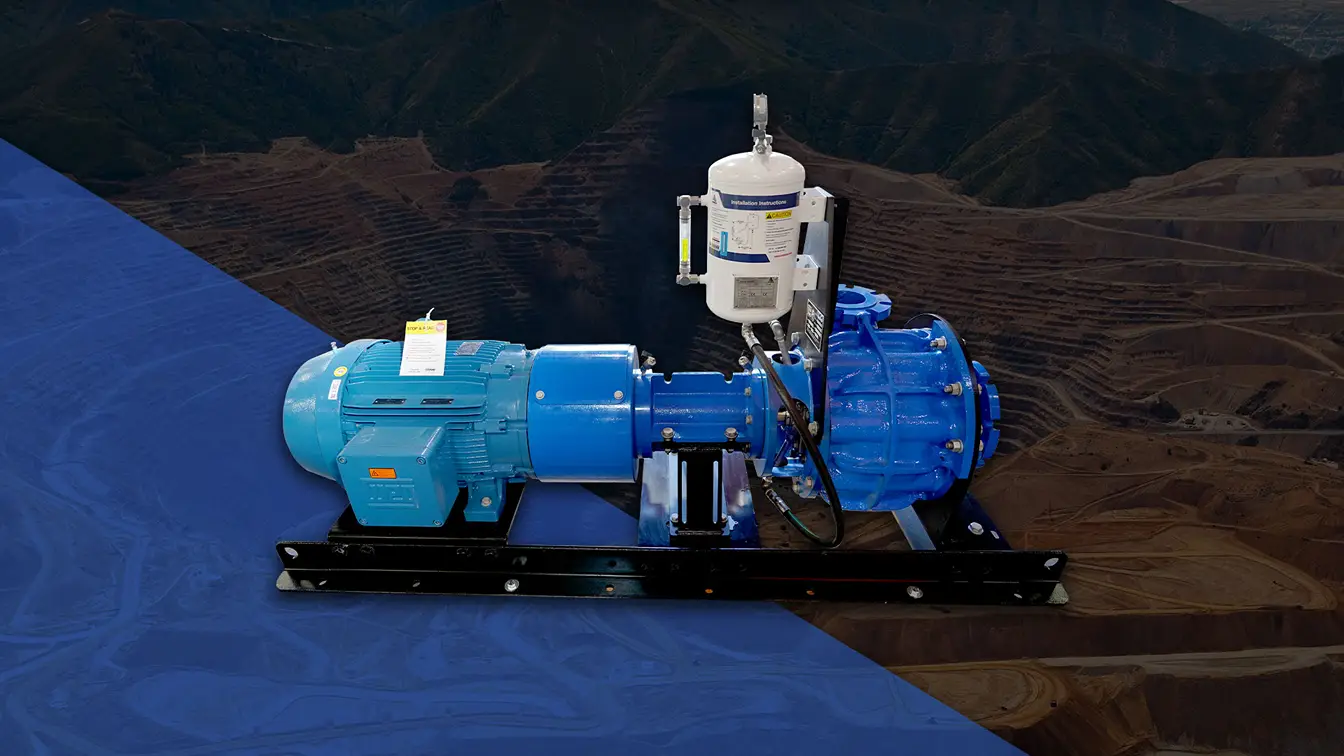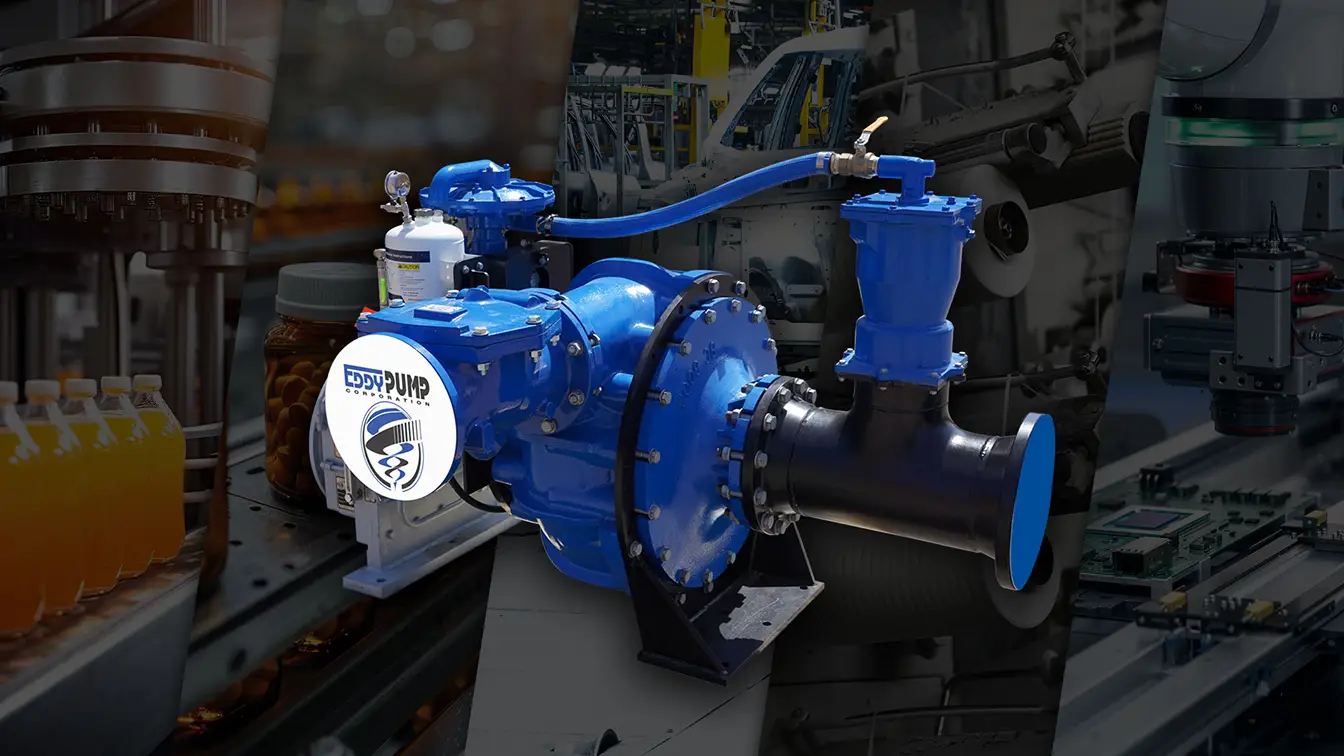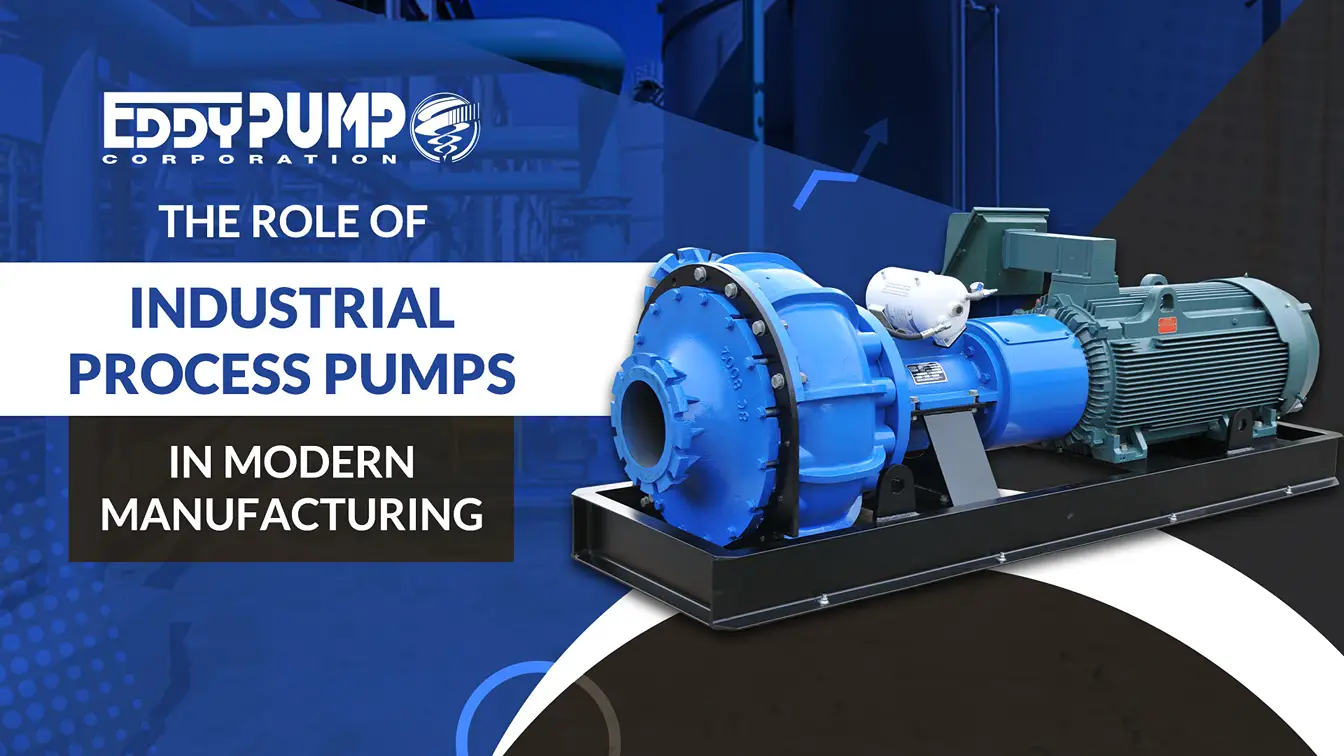
In the competitive world of modern manufacturing, efficiency and reliability are paramount. The industrial process pump is at the core of many manufacturing processes, an essential component that drives the movement of fluids—such as water, chemicals, slurries, and oils—through various production stages. The seamless operation of these pumps ensures that factories and plants maintain productivity, quality, and safety standards.
Industrial process pumps enable fluid transfer, ensure proper flow rates, and maintain necessary pressure levels. Whether mixing ingredients in the food and beverage industry, handling corrosive chemicals in pharmaceuticals, or moving heavy slurries in mining, these pumps are integral to maintaining efficiency and functionality.
Functionally, industrial process pumps convert mechanical energy from a motor into hydraulic energy to move fluids through the system. Different types, like centrifugal, positive displacement, or diaphragm pumps, are used based on specific requirements and conditions. Designed for durability and reliability, these pumps can withstand the demanding environments of manufacturing plants.
As we explore these industrial pumps in more depth, we’ll explore their diverse applications, the technology behind their operation, and the innovations that enhance their performance in modern manufacturing.
Understanding Industrial Process Pumps
Definition and Working Principle of Industrial Process Pumps
Industrial process pumps are specialized devices designed to move fluids, such as liquids, gases, and slurries, through various stages of industrial processes. They convert mechanical energy from a motor into hydraulic power, which drives the fluid through the system. The basic principle involves the pump creating a pressure differential, allowing the liquid to flow from areas of high pressure to low pressure, ensuring continuous and controlled movement.
Types of Process Pumps and Their Specific Uses
Centrifugal Pumps: These pumps generate flow using a rotating impeller and are ideal for transferring low-viscosity fluids at high flow rates. They are commonly used in water treatment, chemical processing, and HVAC systems.
Positive Displacement Pumps: These pumps move fluid by trapping a fixed amount and forcing it through the discharge pipe. They are suitable for high-viscosity fluids and applications requiring precise flow control, such as in the oil and gas, food and beverage, and pharmaceutical industries.
Diaphragm Pumps: These pumps move fluids using a flexible diaphragm. They are perfect for handling abrasive or corrosive substances and are widely used in chemical processing, wastewater treatment, and mining operations.
The Critical Role of Process Pumps in Various Industries
Industrial process pumps are indispensable across numerous industries. In the food and beverage sector, they ensure the hygienic and efficient transfer of ingredients. In pharmaceuticals, they handle delicate and corrosive chemicals with precision. The mining industry relies on these pumps for moving heavy slurries and dewatering operations. Overall, industrial process pumps are vital for maintaining the operational efficiency, safety, and reliability of manufacturing processes, contributing significantly to the productivity and success of various industries.
Essential Components and Design Features
Detailed Description of the Main Components of Process Pumps
Industrial process pumps consist of several critical components that ensure their effective operation. These include the impeller or rotor, which generates the flow; the casing, which houses the internal parts and directs fluid flow; the shaft, which transmits mechanical power to the impeller; seals or packing, which prevent fluid leakage; and bearings, which support the rotating shaft and reduce friction. Each component plays a vital role in the overall functionality and performance of the process pumps.
Importance of Material Selection for Different Applications
Material selection is crucial for the performance and longevity of industrial process pumps. For instance, stainless steel is often used for chemical process pumps due to its resistance to corrosion and chemical attack. Cast iron is suitable for handling abrasive fluids, while plastic materials are chosen for lightweight and corrosion-resistant applications. The appropriate material ensures that the process pumps and equipment can withstand the specific demands of their operating environments, enhancing durability and reducing maintenance needs.
Innovative Design Features Enhancing Efficiency and Reliability
Modern industrial process pumps incorporate innovative design features to boost efficiency and reliability. These features include variable frequency drives (VFDs), which allow precise control of pump speed and energy consumption; magnetic drive systems, which eliminate seals and reduce the risk of leaks; and self-priming designs, which enable pumps to start without manual intervention. Such advancements in chemical process pumps and other types ensure improved performance, reduced operational costs, and enhanced safety in various industrial applications.
Applications in the Manufacturing Sector
Food and Beverage: Ensuring Hygiene and Efficiency in Production Lines
Industrial process pumps are essential for maintaining hygiene and efficiency in the food and beverage industry. They are used to transfer ingredients, mix products, and handle cleaning solutions. Using sanitary pumps ensures that products are free from contamination, adhering to strict health regulations while maintaining high production speeds.
Pharmaceuticals: Precision and Reliability in Drug Manufacturing
Pharmaceutical manufacturing demands precision and reliability, and chemical process pumps are crucial in handling active pharmaceutical ingredients (APIs), solvents, and other chemicals. These pumps provide accurate dosing, maintain sterile conditions, and ensure consistent quality, which is vital for the safety and efficacy of drugs.
Automotive: Supporting Lubrication and Cooling Systems
Process pumps and equipment support lubrication and cooling systems in the automotive sector. These pumps ensure that engines and machinery operate smoothly by circulating oils and coolants, preventing overheating, reducing wear and tear, and enhancing vehicles’ overall performance and longevity.
Textiles: Handling Dyes and Chemicals in Fabric Processing
The textile industry uses industrial process pumps to handle dyes, chemicals, and water in fabric processing. These pumps manage the precise mixing and distribution of dyes and chemicals, ensuring uniform color and quality in textiles. They also play a role in wastewater treatment, helping to meet environmental regulations.
Electronics: Managing Coolants and Etching Solutions
Process pumps are used in electronics manufacturing to manage coolants and etching solutions critical to producing semiconductors and circuit boards. These pumps ensure the accurate and safe handling of corrosive and temperature-sensitive fluids, essential for maintaining the precision and quality required in electronic components.
Chemical Process Pumps: Specialized Solutions
Introduction to Chemical Process Pumps and Their Unique Requirements
Chemical process pumps are designed to handle aggressive and hazardous chemicals used in various industrial processes. They must meet stringent requirements, including corrosion resistance, the ability to handle high temperatures and pressures, and safe and leak-free operation. A chemical process pump is crucial in maintaining the safety and efficiency of chemical manufacturing and processing environments.
Materials and Designs Suited for Handling Aggressive Chemicals
Chemical process pumps are made from materials that can withstand harsh chemicals, such as stainless steel, Hastelloy, and specialized plastics like PTFE. Designs often include features like magnetic drives to eliminate the need for seals, reduce the risk of leaks, and ensure that the pumps can operate safely in aggressive environments. These materials and designs ensure longevity and reliability under challenging conditions.
Case Studies of Chemical Process Pumps in Action
Pharmaceutical Industry:
In the pharmaceutical industry, chemical process pumps are essential for handling highly corrosive solvents used in drug manufacturing. For instance, a leading pharmaceutical company implemented chemical process pumps to transfer aggressive solvents to synthesize active pharmaceutical ingredients (APIs). These pumps provided precise and contamination-free transfer, maintaining the purity and efficacy of the drugs. Using materials like PTFE and Hastelloy ensured the pumps resisted corrosion and maintained high performance under continuous operation.
Chemical Manufacturing:
In a large chemical manufacturing plant, chemical process pumps are employed to manage the transfer of solid acids and bases used in various chemical reactions. For example, a chemical manufacturer utilized these pumps to handle sulfuric acid and sodium hydroxide in their production lines. The chemical process pumps, made from corrosion-resistant stainless steel and equipped with magnetic drives, ensured these hazardous chemicals’ safe and efficient transfer. This setup minimized the risk of leaks and improved overall plant safety and productivity.
Water Treatment:
Chemical process pumps play a critical role in water treatment facilities by dosing and transferring chlorine and other disinfectants. In a municipal water treatment plant, chemical process pumps were installed to manage the precise dosing of chlorine for water disinfection. The pumps’ ability to handle aggressive chemicals and their reliability in continuous operation ensured effective and safe water treatment. The use of specialized materials like PTFE provided excellent chemical resistance, contributing to the long-term durability and efficiency of the water treatment process.
Process Pumps and Equipment: Integration and Efficiency
Integrating Process Pumps with Other Equipment
Integrating industrial process pumps with other equipment is essential for creating efficient and cohesive production systems. Proper integration ensures all components work seamlessly together, optimizing fluid flow, reducing energy consumption, and minimizing downtime. This holistic approach enhances overall operational efficiency and reliability.
Examples of Complete Process Systems in Various Industries
- Food and Beverage: In the food and beverage industry, industrial process pumps are integrated with mixers, heat exchangers, and bottling lines to create a seamless production process. This integration ensures consistent product quality, efficient heat transfer, and precise filling operations.
- Pharmaceuticals: In pharmaceutical manufacturing, process pumps are combined with reactors, filtration systems, and storage tanks. This setup ensures accurate dosing, adequate mixing, and safe storage of sensitive and corrosive chemicals, maintaining high quality and safety standards.
- Chemical Processing: Chemical plants integrate process pumps with reactors, distillation columns, and storage vessels. This complete system facilitates efficient chemical reactions, precise separation processes, and safe storage and transfer of hazardous materials.
Benefits of Using High-Quality Process Pumps and Equipment Together
Using high-quality industrial process pumps and complementary equipment together offers several advantages:
- Enhanced Efficiency: High-quality components work more efficiently, reducing energy consumption and operational costs.
- Improved Reliability: Superior materials and design features ensure durability and consistent performance, minimizing the risk of breakdowns and maintenance needs.
- Increased Productivity: Seamless integration of high-quality process pumps and equipment optimizes production processes, leading to higher output and better product quality.
- Safety: High-quality equipment is designed to handle hazardous materials safely, reducing the risk of leaks, spills, and accidents.
Industries can achieve greater efficiency, reliability, and safety by integrating industrial process pumps with other high-quality equipment.
Innovations in Process Pump Technology
Recent Advancements in Pump Technology
Industrial process pump technology advancements have significantly improved efficiency, reliability, and versatility. Innovations such as magnetic drive pumps, which eliminate the need for mechanical seals and reduce the risk of leaks, and advanced materials like ceramic and composite alloys that enhance corrosion and wear resistance have transformed the capabilities of process pumps. Additionally, developments in variable frequency drives (VFDs) allow for precise pump speed control, optimizing performance for various applications.
Smart Pumps and IoT Integration for Real-Time Monitoring
Integrating intelligent pumps and the Internet of Things (IoT) has revolutionized how industrial process pumps are monitored and managed. Smart pumps with sensors and connectivity features enable real-time monitoring of parameters such as flow rate, pressure, temperature, and vibration. This data can be accessed remotely, allowing for predictive maintenance and quick response to any issues, reducing downtime and improving overall efficiency. IoT integration ensures that process pumps operate optimally, providing insights that help make informed decisions.
Energy-Efficient Designs Reducing Operational Costs
Energy-efficient designs in industrial process pumps have become a focal point in reducing operational costs and environmental impact. Modern process pumps incorporate optimized impeller designs, advanced hydraulic systems, and energy-efficient motors. These innovations reduce energy consumption by minimizing losses and improving the overall efficiency of fluid transfer. Implementing energy-efficient process pumps not only lowers operational costs but also supports sustainability initiatives by reducing the carbon footprint of industrial operations.
Maintenance and Troubleshooting
Best Practices for Maintaining Industrial Process Pumps
Maintaining industrial process pumps involves several best practices to ensure longevity and optimal performance. Regularly lubricate moving parts to prevent leaks, check for proper alignment, and ensure that seals and gaskets are intact. Cleaning the pump and its components to remove any buildup of debris or corrosion is essential. Following the manufacturer’s maintenance schedule and using recommended parts and lubricants will help keep process pumps and equipment in top condition.
Common Issues and How to Address Them
Common issues with industrial process pumps include cavitation, leaks, and overheating. Cavitation occurs when vapor bubbles form in the pump, causing noise and damage. This can be addressed by ensuring proper pump selection and adequate suction pressure. Leaks are often due to worn seals or gaskets and should be fixed by replacing these components. Overheating can result from excessive friction or inadequate cooling, mitigated by ensuring proper lubrication and cooling systems function correctly.
Importance of Regular Inspections and Proactive Maintenance
Regular and proactive maintenance is crucial for the reliability and efficiency of process pumps and equipment. Routine checks can identify potential issues before they become significant problems, reducing the risk of unexpected downtime and costly repairs. Proactive maintenance, such as replacing worn parts and monitoring pump performance, extends the lifespan of industrial process pumps and ensures consistent operation. By adhering to a regular maintenance schedule, industries can enhance the performance, safety, and durability of their process pumps and equipment, ultimately leading to more efficient and cost-effective operations.
Case Studies: Industrial Process Pumps in Action
Real-World Examples from Different Industries
Industrial process pumps are critical in various industries, each with unique requirements. For instance, process pumps are used in the mining industry to handle abrasive slurries. In the food and beverage sector, pumps ensure hygienic and efficient transfer of ingredients. In chemical manufacturing, pumps handle corrosive chemicals safely and reliably. These examples illustrate process pumps’ diverse applications and importance across different sectors.
Success Stories Highlighting the Benefits of Using EDDY Pump’s Solutions
Mining Industry:
A mining company faced challenges with frequent pump failures due to abrasive slurry. After switching to EDDY Pump’s slurry pumps, the company saw significantly reduced downtime and maintenance costs. The pumps’ ability to handle high solids content and abrasive materials efficiently led to increased productivity and reduced operational costs.
Food and Beverage Industry:
A beverage manufacturer needed a solution for transferring viscous liquids without contamination. EDDY Pump’s sanitary pumps provide a reliable and hygienic solution, ensuring product quality and compliance with health regulations. The result was a smoother production process and improved product consistency.
Chemical Manufacturing:
A chemical plant required pumps that could safely handle highly corrosive acids. EDDY Pump’s chemical process pumps, made from corrosion-resistant materials, provided the durability and reliability needed for continuous operation. This solution minimized the risk of leaks and improved overall plant safety.
Testimonials from Satisfied Clients
Mining Company: “Switching to EDDY Pump’s slurry pumps has transformed our operations. We’ve experienced fewer breakdowns and significant cost savings. The pumps’ performance in handling abrasive slurries is unmatched.”
Beverage Manufacturer: “EDDY Pump’s sanitary pumps have been a game-changer for us. The reliability and hygiene they provide have ensured our product quality remains top-notch, and we’ve had no issues with contamination.”
Chemical Plant: “The durability and reliability of EDDY Pump’s chemical process pumps have been impressive. They easily handle our most corrosive chemicals, and we’ve seen a marked improvement in plant safety and efficiency.”
Future Trends in Process Pump Technology
Emerging Trends and Potential Future Developments
Advancements in materials, innovative technologies, and automation are shaping the future of industrial process pumps. Emerging trends include the development of pumps made from advanced composite materials that offer enhanced durability and resistance to corrosion. Additionally, integrating artificial intelligence (AI) and machine learning for predictive maintenance and optimization is gaining traction. These technologies enable process pumps and equipment to self-monitor, adjust operational parameters, and predict potential failures, improving efficiency and reducing downtime.
The Role of Sustainability and Environmental Considerations
Sustainability and environmental considerations are increasingly important in designing and operating industrial process pumps. Future developments will likely focus on creating more energy-efficient pumps that reduce carbon footprints. Innovations like variable speed drives and energy recovery systems will significantly minimize energy consumption. Additionally, eco-friendly materials and designs that facilitate easy recycling and disposal of chemical process pumps will align with global sustainability goals.
Predictions for the Next Decade in Process Pump Technology
The process pump industry will see significant advancements over the next decade. Smart pumps with IoT connectivity will become standard, providing real-time data and analytics to optimize performance and maintenance. Energy efficiency will remain a key focus, with new designs and technologies reducing operational costs and environmental impact. Furthermore, additive manufacturing (3D printing) advancements could revolutionize the production of custom pump components, offering tailored solutions for specific industrial needs. Integrating intelligent technologies, sustainable practices, and innovative materials will drive the evolution of process pumps and equipment, enhancing their efficiency, reliability, and environmental compatibility.
Conclusion
In exploring industrial process pumps, we’ve covered their essential role in modern manufacturing, from ensuring hygiene in the food and beverage industry to handling corrosive chemicals in pharmaceuticals and supporting critical operations in automotive and textiles. We’ve delved into the key components and design features that make these pumps reliable and efficient, the innovations driving the future of pump technology, and the importance of integrating them with other equipment for optimal performance.
Choosing the proper process pumps for specific applications is crucial for maximizing efficiency, reducing operational costs, and ensuring safety. Whether dealing with abrasive slurries, delicate pharmaceuticals, or corrosive chemicals, selecting the appropriate pump type and material can significantly impact your operations’ success and longevity.
For expert advice and tailored solutions, contact EDDY Pump. Our team of specialists is dedicated to helping you find the best process pumps and equipment for your unique needs, ensuring you benefit from the latest advancements in pump technology. Contact EDDY Pump today and take the first step towards optimizing your industrial processes.

